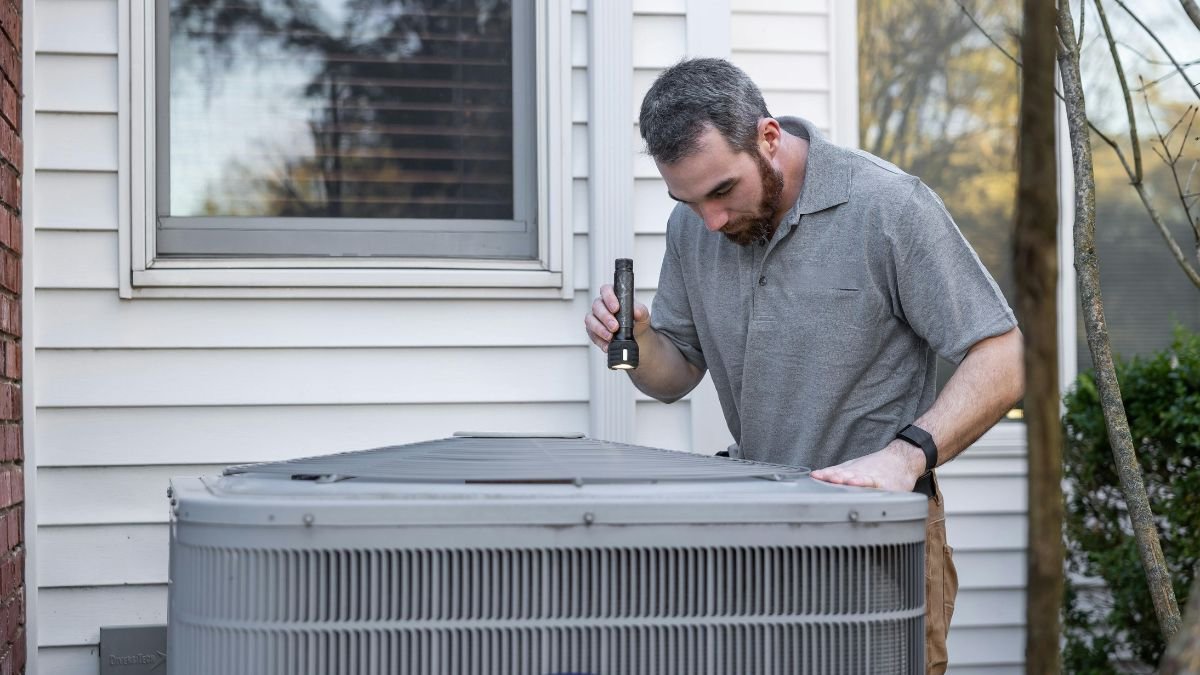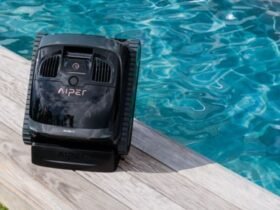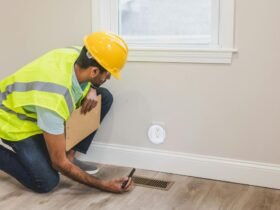Many people are unsure how long their furnace, air conditioner, or heat pump should actually last. Even fewer know what steps can help stretch that lifespan.
The truth is that HVAC units don’t simply run until they stop working. Their lifespan depends on several factors, including how often they are used, how well they are maintained, and whether they were installed correctly in the first place.
This article will guide you through the expected lifespan of different types of HVAC units and some practical Here are some important steps you can take to safeguard your system.
How Long Do HVAC Units Usually Last?
Different HVAC units have different lifespans. A typical gas furnace can last anywhere from 15 to 20 years, while central air conditioners usually run For a period of about twelve to fifteen years. Heat pumps, which both heat and cool a home, tend to have a shorter life expectancy of around 10 to 15 years.
These numbers are averages, not guarantees.
If your unit is approaching the end of its expected lifespan, it may be time to think about replacement options rather than putting more money into repairs.
Warning Signs of Major HVAC Problems
Recognizing early signs of trouble can save both money and years of system life. One of the first red flags is unusual noise. Grinding, rattling, or buzzing sounds often indicate loose or failing parts. Weak or uneven airflow is another concern, usually tied to duct leaks, motor problems, or clogged components.
Energy bills that rise without explanation are often the result of a system working harder than it should. In some cases, strange odors, frequent cycling, or water leaks around the unit also point to deeper problems.
Similarly, homeowners should be alert to the signs of a damaged heat exchanger, as this is not only a performance issue but also a health and safety risk. More serious concerns, such as carbon monoxide [A1] leaks in furnaces, can stem from issues like cracks in key components. Acting quickly when problems arise can prevent further damage and extend the life of the system.
Why Air Filters Matter More Than You Think
Air filters play a bigger role in HVAC lifespan than many homeowners realize. A clogged or dirty filter restricts airflow, forcing the system to work harder. This extra strain can cause parts like the blower motor or compressor to wear out sooner than they should.
Replacing air filters on a regular schedule—typically every one to three months—keeps the system running smoothly. Keeping the filters clean enhances indoor air quality by capturing dust, pollen, and other pollutants. For households with pets or allergy sufferers, more frequent replacement may be needed.
Something as simple as a clean filter can make a measurable difference in how long your HVAC system lasts. It’s a small step that adds up to big savings over time.
How Seasonal Climate Affects Longevity
Where you live has a direct impact on how long your HVAC system will last. Units in warmer regions often run almost year-round, especially if summers are long and humid. That constant demand shortens the life of compressors, fans, and other moving parts. On the other hand, in northern areas with harsh winters, furnaces work overtime and face similar stress.
Outdoor conditions also matter. Systems exposed to salty air in coastal regions may corrode faster. In dry, dusty environments, filters and coils clog more quickly and require extra care. Taking climate into account helps explain why the same type of unit may last 20 years in one home but only 12 years in another.
Homeowners can reduce climate-related wear by preparing their system for each season. Covering outdoor units during winter, cleaning around them in summer, and scheduling timely maintenance are simple steps that help minimize environmental strain.
Energy Efficiency and Smart Upgrades
As HVAC units age, they naturally become less efficient. A furnace or air conditioner that was top-of-the-line 15 years ago will no longer meet today’s energy standards. This loss of efficiency not only raises utility bills but also forces the system to run longer to deliver the same comfort.
Upgrades can help offset this problem. Adding a programmable or smart thermostat is a low-cost improvement that reduces unnecessary runtime. Zoning systems allow you to heat or cool only the rooms that are in use, which lowers strain on the equipment. Even sealing ductwork and improving insulation in older homes can extend the life of a unit by making it easier for the system to keep temperatures steady.
When combined with regular servicing, these upgrades can keep an older system running more smoothly until it’s time for replacement.
Simple Tips to Extend the Life of Your HVAC Unit
There are several practical steps homeowners can take to keep their HVAC system running longer. Scheduling professional tune-ups twice a year is one of the most effective. Technicians catch small issues before they become expensive problems.
Keeping vents and registers free of dust and furniture helps maintain proper airflow. Sealing ducts prevents air leaks that cause the system to overwork. Ceiling fans can also reduce the load on heating and cooling units by improving air circulation throughout the home.
For older homes, upgrading insulation pays off in two ways: it improves comfort and reduces the demand on the HVAC unit. These simple habits, when done consistently, can add several years to the system’s lifespan.
HVAC units are built to last, but their actual lifespan depends on how they are installed, maintained, and used. Furnaces, air conditioners, and heat pumps each have average life expectancies, but climate, upkeep, and efficiency upgrades play a major role in whether a unit reaches or falls short of those numbers.
Homeowners who invest in proper installation, stay on top of regular maintenance, and pay attention to warning signs can often extend their system’s life well beyond the average. Small steps like replacing filters, sealing ducts, and scheduling seasonal checkups may seem minor, but they make a measurable difference in how long a unit runs efficiently.
Ultimately, an HVAC system provides comfort, efficiency, and reliability when properly maintained. is not just about comfort—it’s also about cost savings and safety. Taking care of it ensures that you get the most value from one of the largest investments in your home.













